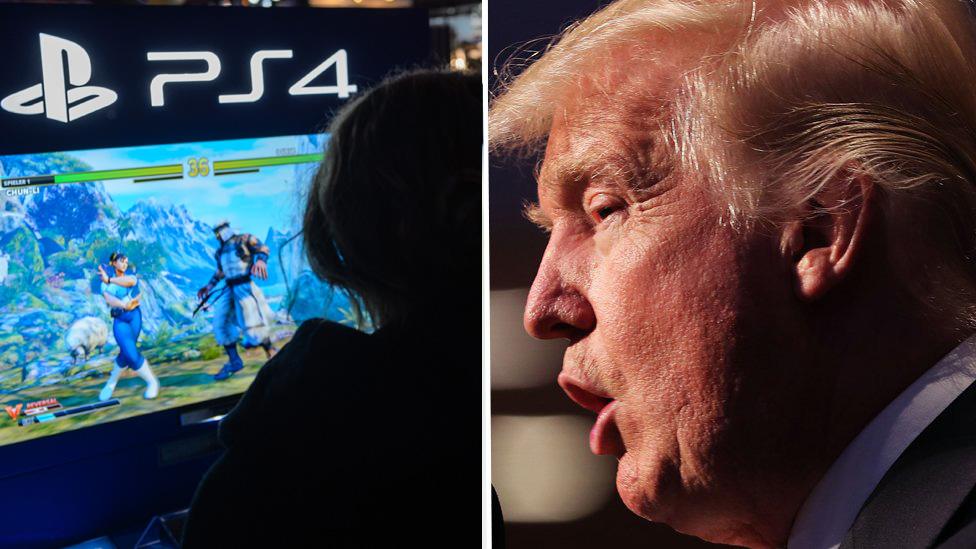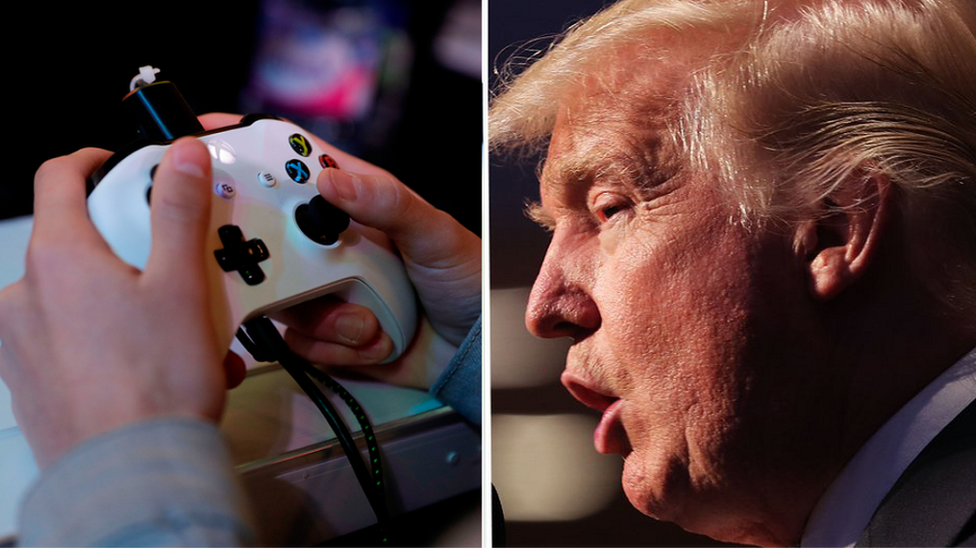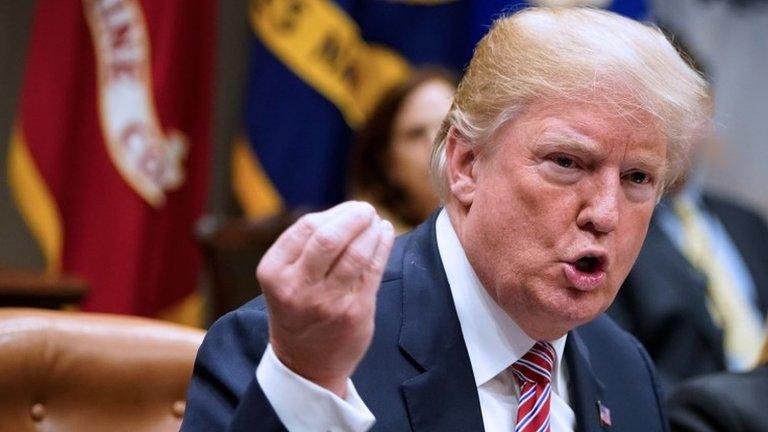Trump holds games violence meeting
- Published
- comments

It is not clear exactly which video games the White House holds responsible for violent behaviour
US President Donald Trump has met video games company representatives to discuss violent content.
The meeting came in the wake of last month's shooting at a school in Florida in which 17 people died.
The president has in the past expressed the view that violent games were "shaping young people's thoughts".
But the games industry has defended itself, saying there is no evidence to suggest a link between violent games and real-life violent actions.
The White House said Mr Trump's discussions with the group "centred on whether violent video games, including games that graphically simulate killing, desensitise our community to violence".
The Electronic Software Association (ESA), which represents the games industry in the US, attended the meeting, which it had said would provide "the opportunity to have a fact-based conversation about video game ratings, our industry’s commitment to parents, and the tools we provide to make informed entertainment choices".
Also at the meeting was the Entertainment Software Rating Board (ESRB), the organisation responsible for offering age and content guidance for games.
Critics of the industry included Brent Bozell from the Media Research Center. He has frequently called for a reduction of violence in games.
Other attendees included:
Strauss Zelnick, chief executive of Take-Two Interactive, which publishes the Grand Theft Auto series (made by Rockstar Games)
Robert Altman, chief executive of ZeniMax Media, which owns Doom, Fallout and Wolfenstein-maker Bethesda
Lt Col Dave Grossman, author of Assassination Generation: Video Games, Aggression, and the Psychology of Killing
Melissa Henson, a mother from the Parents Television Council
Ms Henson said after the meeting that it had lasted for almost an hour and was "vigorous" but "respectful".
She added that the president seemed interested in hearing from all sides,
'Creating monsters!'
On several occasions, President Trump has pointed to video game violence as being a problem potentially affecting American youths.
"Video game violence & glorification must be stopped," he wrote on Twitter in December 2012.
"It is creating monsters!"
The games industry has routinely and robustly defended itself against claims its products provoke real-life violence.
“Video games are enjoyed around the world and numerous authorities and reputable scientific studies have found no connection between games and real-life violence," the ESA said in a statement.
"Like all Americans, we are deeply concerned about the level of gun violence in the United States. Video games are plainly not the issue: entertainment is distributed and consumed globally, but the US has an exponentially higher level of gun violence than any other nation."
In 2011, the US Supreme Court overruled a California law that banned the sale of certain violent games to children without parental supervision. It deemed games to be speech protected by the US constitution's First Amendment.
However, in making its ruling, the court did say the issue might warrant closer examination at a later date.
The meeting was not the first to take place between the White House and the games industry in the wake of a school shooting.
In 2013, following the death of 20 pre-school children and six staff members at Sandy Hook Elementary School in Connecticut, the vice-president at the time, Joe Biden, met games representatives from firms such as Electronic Arts and Epic.
Mr Biden said games companies were not being "singled out" and there was no "silver bullet" when it came to solving the issue. He said there was no good data either way to support or disprove claims that games violence provoked real actions.
- Published2 March 2018

- Published23 February 2018
